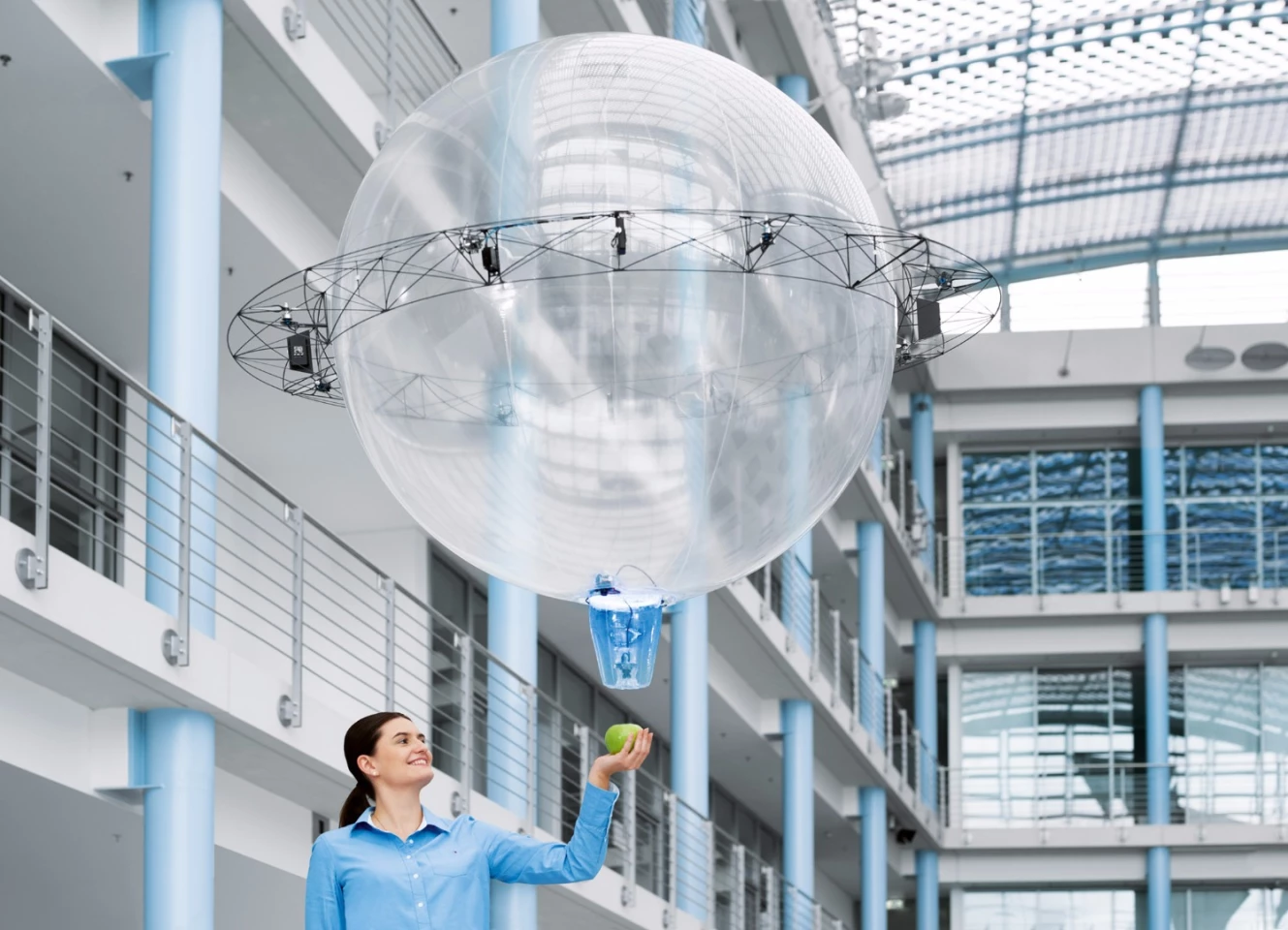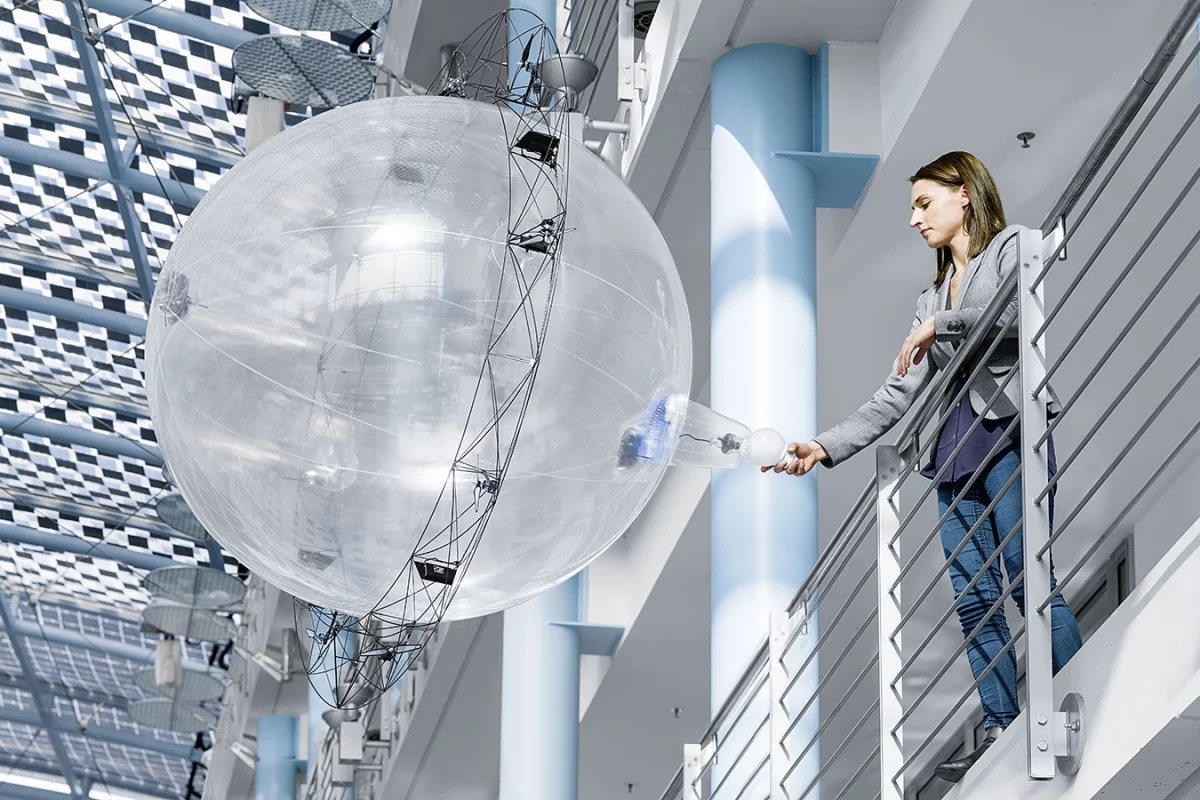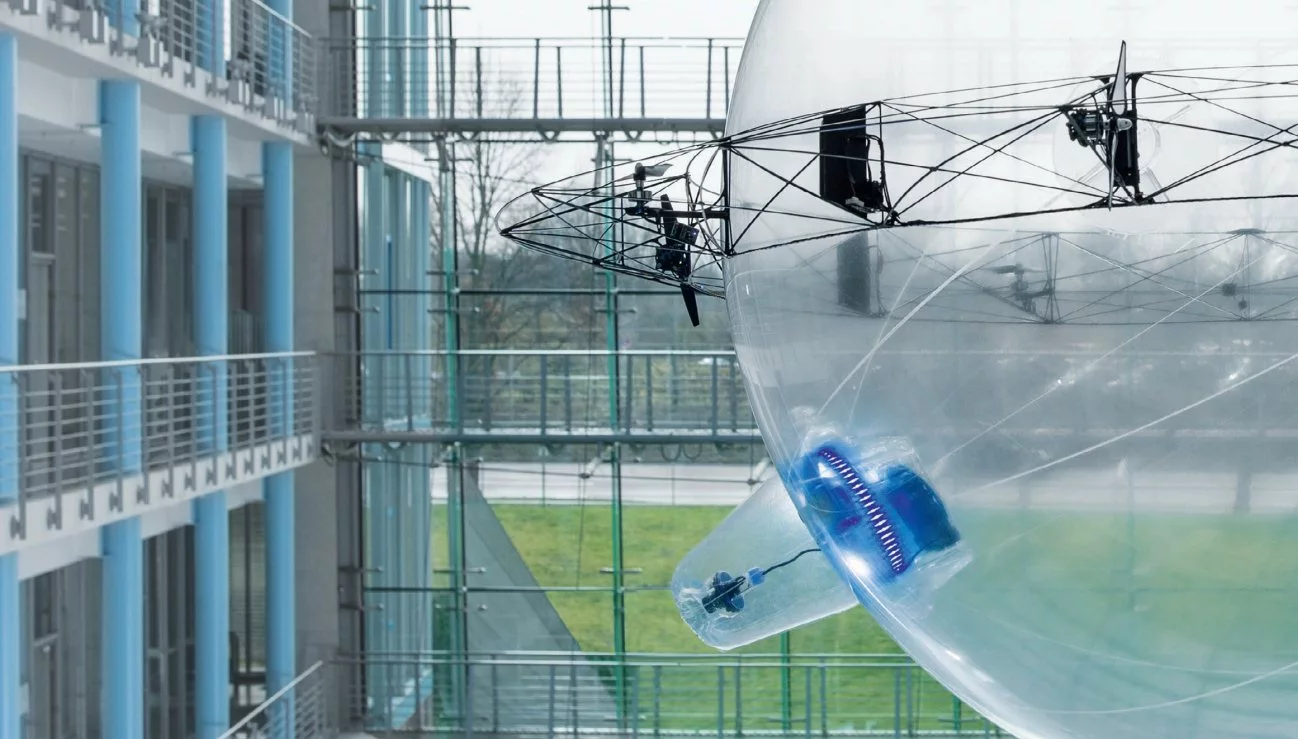Ahead of this month's Hannover Messe trade show in Germany, Festo's Bionic Learning Network has today previewed a new helium-filled flyer that merges two previous projects into a single future concept. The FreeMotionHandling project combines the eMotionSphere from 2 years ago and last year's FlexShapeGripper for an autonomous gripping sphere that's able to take hold of an object, pick it up and fly it to another location for drop off.
The development of the FreeMotionHandling concept combines two of Festo's long-term passions – flying and gripping. The concept flyer is made up of a 137 cm (54 in) diameter inflated sphere, a rotor-packed ring and a flexible gripper. Before the helium is pumped into the sphere, the flyer tips the scales at 1,400 g (3 lb), but the addition of helium gives it an in-the-air weight of 50 g.
The carbon fiber ring around the middle of the sphere is home to printed circuit boards, integrated wireless technology, onboard sensors, four horizontal rotors and four vertical steering drives. The adaptive drive system, an extension of the BionicOpter design, can provide the same thrust in both directions of rotation and caters for "dynamic flying behavior in all spatial directions," which allows the gripper to take hold of objects from various angles. Six rechargeable batteries offer a maximum, payload-free flight time of 40 minutes.
An indoor tracking system that makes use of 10 infrared cameras is able to keep tabs on the sphere in the installation space thanks to eight IR LED active markers attached to the flying ring. The cameras record the location of the sphere at 160 frames per second and positional data is transmitted to a central master computer that's reported capable of analyzing 3.7 billion pixels per second.

The integrated gripper is based on similar principles to a chameleon's tongue and is basically a helium-filled film sleeve that wraps itself around objects like an apple or a bottle of water and is able to grab more than one object at a time (up to a maximum weight of 400 g/0.9 lb).
Two onboard cameras are used for precise object detection – one camera is located in the gripper itself, while the other is positioned on the outer sleeve. The FreeMotionHandling system can independently identify objects to pick up on its own. It does this by saving a large number of images in various sizes, views and lighting conditions as an array of examples.
Intelligent software generates an overall image of the object so that the system's computer can extract key features. Once the system has gathered enough object samples, it's then able to recognize learned objects by itself.
Festo says the concept could perhaps go on to serve as a flying assistance system in the workplace. You can see the FreeMotionHandling concept in action in the video below.
Sources: Festo










